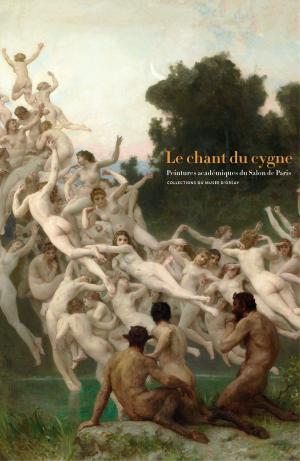Art as an Investment?
A Survey of Comparative Assets
Business & Finance, Industries & Professions, Nonfiction, Art & Architecture, General Art| Author: | Melanie Gerlis | ISBN: | 9781848221529 |
| Publisher: | Lund Humphries | Publication: | January 1, 2016 |
| Imprint: | Lund Humphries | Language: | English |
| Author: | Melanie Gerlis |
| ISBN: | 9781848221529 |
| Publisher: | Lund Humphries |
| Publication: | January 1, 2016 |
| Imprint: | Lund Humphries |
| Language: | English |
Aimed at collectors and investors, this user-friendly guide explains art's value as an asset through comparisons with more familiar investments, including property, shares and gold. It draws on extensive research and interviews with key players in these other markets, as well as the author's own experience, to clarify the specifics of art as an asset class.
This timely book considers the growing importance attributed to art as an investment, testing the validity of claims about art's capacity to generate returns that outweigh its risks. It offers jargon-free explanations of how the characteristics of blue-chip art can be seen to coincide with and diverge from the fundamental features of more established types of asset. Key issues addressed include the role of subjectivity in the perception of value; the failure of attempts to establish stock markets for art; the risks and shortcomings of art funds; banks' reluctance to lend against art; and the art world's distaste for selling and speculation.
This thorough but accessible text from a respected art market professional is essential reading for art investors and prospective art investors.
Aimed at collectors and investors, this user-friendly guide explains art's value as an asset through comparisons with more familiar investments, including property, shares and gold. It draws on extensive research and interviews with key players in these other markets, as well as the author's own experience, to clarify the specifics of art as an asset class.
This timely book considers the growing importance attributed to art as an investment, testing the validity of claims about art's capacity to generate returns that outweigh its risks. It offers jargon-free explanations of how the characteristics of blue-chip art can be seen to coincide with and diverge from the fundamental features of more established types of asset. Key issues addressed include the role of subjectivity in the perception of value; the failure of attempts to establish stock markets for art; the risks and shortcomings of art funds; banks' reluctance to lend against art; and the art world's distaste for selling and speculation.
This thorough but accessible text from a respected art market professional is essential reading for art investors and prospective art investors.















